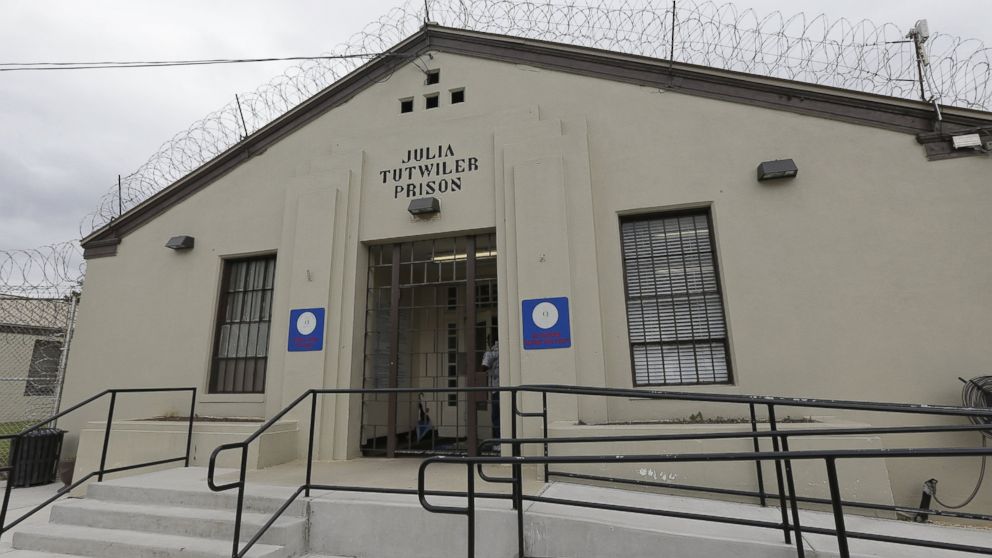Alabama Prison Was House of Horrors for Female Inmates, Feds Say
Inmates at Tutwiler Prison faced sexual abuse for years, probe says.

Jan. 22, 2014— -- A Justice Department investigation accuses Alabama officials of violating women’s rights by fostering an environment of rampant sexual abuse at the state’s Tutwiler Prison, where inmates “universally fear for their safety” and officers allegedly forced women to engage in sex acts just to obtain basic sanitary supplies.
The nearly 900 women incarcerated at the maximum-security prison live “in a toxic environment with repeated and open sexual behavior,” the Justice Department said in announcing its findings today into the Wetumpka, Ala., facility.
As part of the alleged abuses, male officers openly watched women shower or use the toilet, staff helped organize a “strip show,” prisoners received a constant barrage of sexually offensive language, and prisoners who reported improper conduct were punished, according to the department.
What’s more, at least a third of the 99 employees at Tutwiler have had sex with prisoners, the department said.
“We conclude that the state of Alabama violates the Eighth Amendment of the United States Constitution by failing to protect women prisoners at Tutwiler [Prison] from harm due to sexual abuse and harassment from correctional staff,” the Justice Department wrote in a letter to Alabama Gov. Robert Bentley.
Perhaps most disturbing, investigators concluded the Alabama Department of Corrections and officials at Tutwiler have been “well aware of the multitude of structural problems that allow this abuse and harassment to continue unabated.”
“Officials have been on notice for over eighteen years of the risks to women prisoners and, for over eighteen years, have chosen to ignore them,” the head of the Justice Department’s Civil Rights Division, Acting Assistant Attorney General Jocelyn Samuels, said in the letter. In that time, inmates have been raped, sodomized and fondled by prison staff, yet officials “remain deliberately indifferent to the serious and significant need to protect women prisoners.”
In addition, the report found the sexual abuse and harassment were grossly under-reported due to fear of retaliation.
“Action needs to be taken immediately,” George Beck Jr., the U.S. attorney for the Middle District of Alabama, said in a statement.
The Justice Department’s inquiry began in February 2013, after what it called a “sordid history of sexual abuse and harassment” at Tutwiler since it opened in 1942. As part of their investigation, federal officials visited Tutwiler, interviewed dozens of prisoners, and reviewed 233 letters from current inmates.
But their work is not over. In a notice to Alabama officials, the Justice Department said its investigation will now look at more potential violations of prisoners’ rights, including allegations of excessive force and constitutionally inadequate conditions of confinement and health care.
The leadership at Alabama’s Department of Corrections “fully cooperated” with the federal investigation, and the Justice Department noted that Tutwiler’s new warden was not there “when much of the alleged misconduct took place.”
The head of the Alabama Department of Corrections, Commissioner Kim Thomas, said her department has “never downplayed the significant and serious nature of these allegations,” adding that they represent “an unacceptable abuse of power.”
“I do not, however, agree that Tutwiler is operating in a deliberately indifferent or unconstitutional manner,” Thomas said. “We will cooperate with the Department of Justice and continue our efforts to implement changes and recommendations with the goal of improving prison conditions and avoiding potential contested litigation.”
A spokesman for Thomas noted that a year ago she announced a formal “action plan” to improve operations at Tutwiler, and even before that state officials “began universally addressing and implementing” scores of changes.




